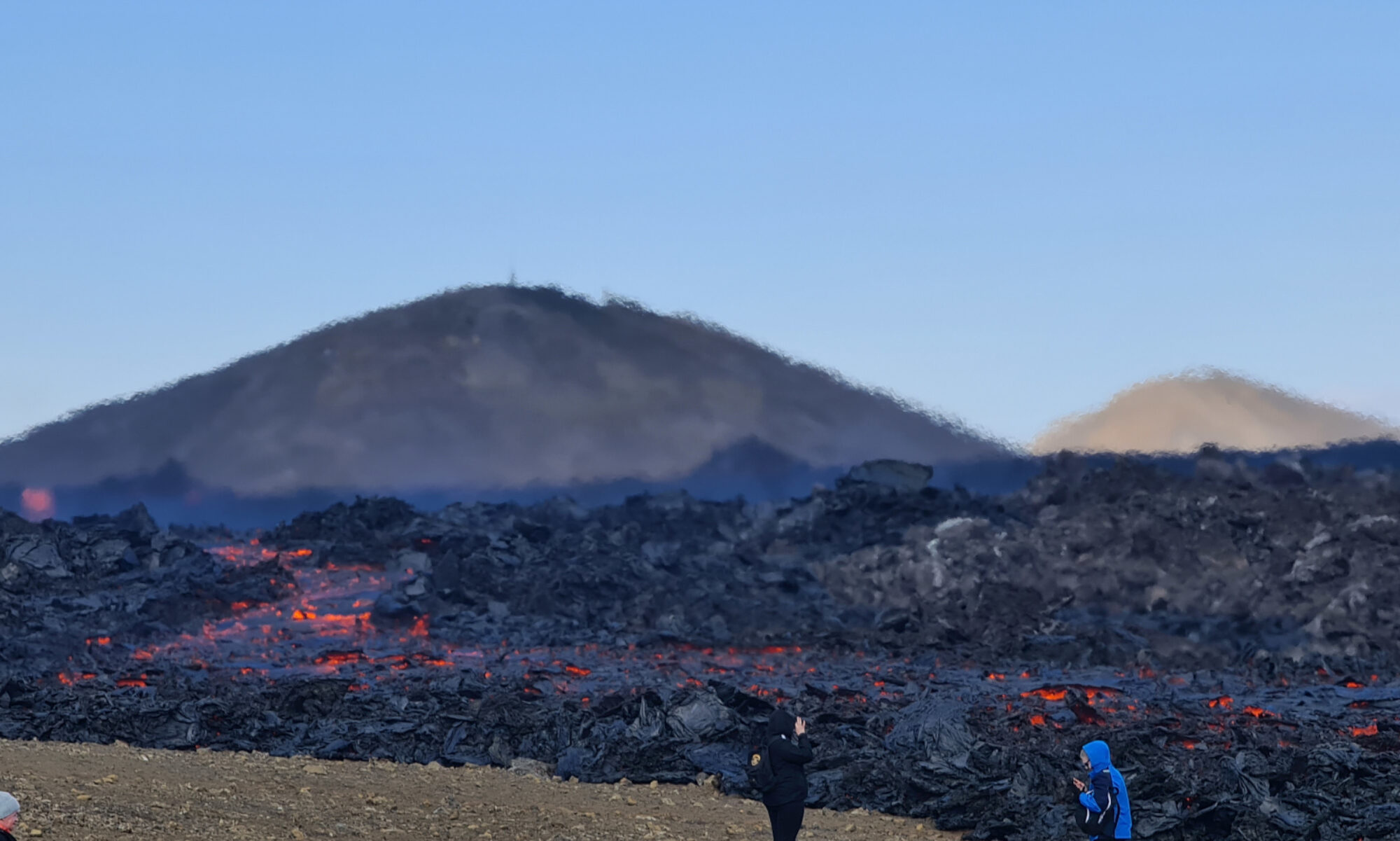This information is going to get outdated quickly.
Current status in Bárðarbunga volcano at 23:03 UTC
- Largest earthquake from midnight was a magnitude 5,2 that took place at 04:33 UTC. Second largest earthquake today took place at 13:44 UTC and had the magnitude of 4,5. Other earthquakes have been smaller.
- Bárðarbunga caldera continues to subside at around 50cm/day.
- No major change has been reported today regarding Holuhraun eruption. That might be due all the geologist being on a convention today in Bifröst University.
- Harmonic tremor suggest that more magma is flowing into Bárðarbunga volcano system. Increasing the pressure in it. Interestingly this does not appear to have created any inflation in the caldera, at least not any long term inflation is taking place in the caldera. There is less magma erupting from Holuhraun at the moment than is flowing into Bárðarbunga volcano, this is based on current data. It is clear that in new magma is going somewhere, but where is a question with no answer at the moment.
- GPS data has stopped acting strange. I am not sure why that happened or why GPS data was strange for few days.
- Harmonic tremor signal at 22:40 suggest a minor eruption did start and stop under the glacier. This was one of minor eruption that have been taking place in Bárðarbunga volcano for the past month. I don’t expect to have broken the glacier. If there is any glacier flood from this minor eruption it is going to small, since I don’t expect large amount of glacier being melted in this minor eruption.
- Earthquake activity is moving south along the dyke from Bárðarbunga. That is not good since it suggests that pressure has started to increase in the dyke. This means new eruptions might start without warning where the dyke is located.
- Storm is expected in Iceland tomorrow, with wind up to 35m/s. So detection of earthquakes is going to be difficult while the storm passes over.
Other new items I have not come across today. If anything new happens, I am going to add it here or write a new article if it is big enough event.

Its the lots of little EQs that suggest something is happening. Guess we’ll know soon enough.
Quakes are picking up in the dike again.
http://en.vedur.is/earthquakes-and-volcanism/earthquakes/vatnajokull
R2D2 not giving signal – batteries empty?
No lights on it for awhile…. afternoon on
There is a lot of earthquakes now under Dyngjujökull.
http://en.vedur.is/earthquakes-and-volcanism/earthquakes/vatnajokull/
Could it perhaps be that they removed the – certainly expensive – radar, because they fear an eruption there could be imminent? And it would mean an ashy eruption with a jökulhlaup, if the magma would build a vent under the glacier there.
I was watching last night (from Hawaii, 10 hours behind) and there were no lights blinking on R2D2 then, either; so this has been the case for awhile.
An aurora and eruption photo:
http://apod.nasa.gov/apod/ap140923.html
New article is up on what has been happening today in Bárðarbunga volcano.
Who’s manually checking these EQs?
Surely they must have made an error when they manually measured the 0815 EQ.
IMO categorized the EQ as a 5.2, and it just doesn’t compare in scale to past EQs in the 5.0-5.5 range.
Further… the four recent EQs in the 4.0 range seem much smaller in comparison.
I draw your attention to the right hand side of the seismograms, where the plot is almost solid red along the border [from top to bottom] especially at IVON & IDYN.
This EQ had to be in the 6.0-6.5 range!
This are volcanic earthquakes. They are often lower in frequency than normal tectonic earthquakes.
More here.
http://www.sciencedirect.com/science/article/pii/S0040195112007949
http://volcanoes.usgs.gov/activity/methods/seismic/
http://link.springer.com/chapter/10.1007/978-3-642-77008-1_16
Thanks!
drumplots [not seismograms]
It is my supposition that the more magma flowing in than coming out of the system is gradually filling the chamber deep under the caldera. Also my supposition is that since the last eruption the magma beneath the hardened caldera floor subsided to much deeper levels leaving behind a sponge-like array of semi-connected lava tubes and caverns. What’s currently happening is that this ‘array’ of chambers and partial conduits is slowly being filled while previously hardened magma(lava) is also melting and returning to magma.
Now that the caldera floor is bumping up and down(mostly down) you can bet that it is fracturing and water is likely to be getting into the upper few Km. That might be what some of those small surface and near surface quakes are about.
(just my layman geologist thoughts – Geology was one of my most enjoyable classes!)
Thanks for all you do, Jon,
You should show a small donation of approx. $30 USD toward your new router.
I hope many others can share in your effort similarly . . . or more.
Thanks for keeping up the good work.
Welcome back, Jon. I hope your time away was restorative.
I was noticing on a map today or yesterday . . . considering the
Mid Atlantic Ridge
. . . it appears to take a detour . . . a kind of a big bump or carbuncle on its face at Iceland–wherein Iceland seems to bump it quite out of the line it would normally seem to have taken.
Is the theory that the hot spot is responsible for that?
It seems like I’ve read something along those lines. However, I don’t understand how a hot spot would cause such changes in the normal Mid Atlantic Rift’s dynamics and geography, physics.
I don’t know that you have any insights on the above but I’d love to read any you might have.
Cheers.